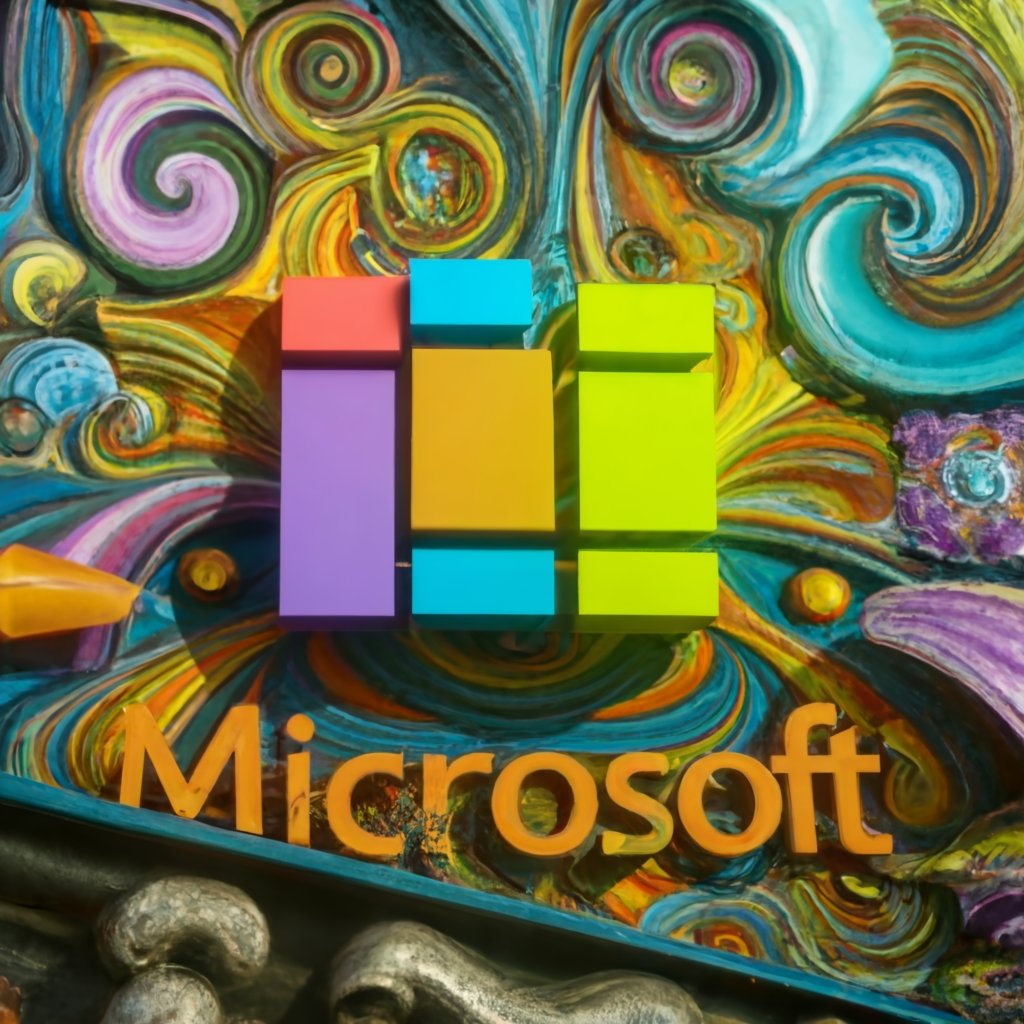
Stability AI introduces Stable Video Diffusion and adds it to its Developer Platform API
Other AI News
-
Virtuleap, a VR focused startup raises $2.5 million from GED Ventures
Virtuleap, a startup focusing on healthtech and edtech, has raised $2.5 million from GED Ventures Portugal to enhance brain health using virtual reality (VR) and AI. The company has developed a collection of VR games designed to evaluate and improve various cognitive abilities, such as memory, attention, motor control skills, and spatial orientation. These games, developed by neuroscientists, serve as translations of neuropsychological assessment tools and are analyzed using AI learning tools. Virtuleap’s Enhance VR program, dubbed a “gym for the mind,” aims to be accessible to everyone and potentially serve as a therapeutic tool for learning challenges like ADHD and other cognitive disorders.
Virtuleap is also developing Cogniclear VR, a VR-based cognitive screening tool set to launch in 2024. This tool, co-designed with partners like Lusíadas Saúde and Roche Portugal, aims to detect cognitive disorders early, enabling better health outcomes for illnesses like Alzheimer’s disease. The company’s commitment to research is evident with four published papers, including a pilot study showcasing the capability to enhance processing speed in students with ADHD. Virtuleap’s flagship product, Enhance VR, has gained over 60,000 early registered users globally and is available in major VR app stores in five languages, with plans to add more languages by Q1 2024. This investment round, led by GED Ventures Portugal, reflects a strategic approach to investing in technology that positively impacts health and well-being.
-
Midjourney launches MJ V6 with improved image and text rendering
Midjourney version 6 (MJ V6), the latest iteration of the popular image generation AI model, has been released as an alpha version, bringing significant improvements in image realism and the ability to generate legible text within images. This update marks a notable advancement for Midjourney, which had previously struggled with text generation in images, a feature already present in rival AI image generators like OpenAI’s DALL-E 3. According to David Holz, founder of Midjourney, V6 represents a major leap in realism compared to previous versions, developed over nine months using their AI superclusters.
The new features of MJ V6 include more accurate prompt following, improved coherence, model knowledge, and minor text drawing abilities. Users need to activate V6 manually in the Midjourney Discord server or through direct messages to the Midjourney bot. Holz also noted that prompting with V6 is significantly different from previous versions, requiring users to adapt their techniques. Despite some features missing from V5.2, such as pan left/right and zoom out, these are expected in future updates. MJ V6’s release continues Midjourney’s progression as a leading AI art generator, even as it faces challenges from competitors and ongoing copyright litigation issues.
-
Intel unveils its 5th generation Xeon chips with AI acceleration
Intel has unveiled its 5th Gen Xeon processors, codenamed Emerald Rapids, featuring AI acceleration in every core. Set to hit the market in 2024, these processors are designed for a range of applications including artificial intelligence, high-performance computing, networking, storage, databases, and security. The new processors offer up to 42% higher inference performance for AI workloads and a 21% average performance gain for general compute performance compared to the previous generation. They also provide a 36% increase in performance per watt across various workloads, enhancing efficiency.
Key features of the 5th Gen Xeon processors include AI acceleration in every core, improved performance and efficiency, enhanced capabilities with support for up to 64 cores per CPU, increased last-level cache, DDR5 support, and higher memory transfer speeds. They also offer compatibility with CXL Type 3 workflows and enhanced security with Intel Trust Domain Extensions (Intel TDX). The processors will be available in single- and dual-socket systems from major OEMs like Cisco, Dell, HPE, Lenovo, and others by the first quarter of 2024, with major cloud service providers announcing availability throughout the year. Intel also plans to introduce Sierra Forest and Granite Rapids processors, focusing on E-core efficiency and P-core performance, respectively, in the first half of 2024.
-
Salesforce increases its AI capabilities by integrating vector database support into its Data Cloud and upgrading its Einstein Copilot generative assistant
Salesforce is enhancing its AI capabilities by integrating vector database support into its Data Cloud and upgrading its Einstein Copilot generative assistant. The vector database support in Salesforce Data Cloud will transform unstructured business data into a usable vector format, unifying it with structured information to enable generative AI and analytics in Salesforce CRM application workflows. This integration provides robust data insights and streamlined processes, accessible via relevant prompts, and eliminates the need for time-consuming fine-tuning of large language models on both structured and unstructured data.
Einstein Copilot, Salesforce’s generative AI assistant, will also benefit from these advancements, gaining AI-driven search capabilities. This feature will allow users to query all their business data, both structured and unstructured, and receive precise information in their workflow. Scheduled for general use in February 2024, Einstein Copilot will offer a conversational helper across various CRM apps, providing citations to its source material for complete confidence in the generated information. These updates mark a significant step forward in Salesforce’s AI agenda, aiming to foster a data-driven ecosystem where AI, CRM, automation, and analytics turn data into actionable intelligence and drive innovation.
-
Microsoft integrates music generation with its AI assistant Copilot
Microsoft has announced a new partnership with Suno, an AI music startup, to integrate its technology with Microsoft’s AI assistant Copilot, enabling users to create complete musical compositions from simple text prompts. This integration allows users to generate songs, complete with lyrics, instruments, and vocals, from brief descriptions, democratizing music creation. However, this raises concerns about copyright infringement, originality, and the potential impact on human artists. Microsoft is aware of these ethical challenges and promises responsible development through public feedback, mirroring Google’s approach with its experimental songwriting tool, MusicFX.
This collaboration positions Microsoft at the forefront of exploring AI’s creative potential in music. While Copilot’s new capabilities could lower barriers to musical creation and enable new forms of expression, questions remain about regulation, compensation, and the preservation of human artistry in AI-generated music. As these tools evolve, Microsoft faces the challenge of balancing transparency, collaboration with users and artists, and the industry’s needs. This balance is crucial to ensure that AI augments rather than replaces human creativity in music. If managed thoughtfully, Copilot’s new features could herald an innovative future at the intersection of technology and music.
-
AppOmni introduces AskOmni, a GenAI powered SaaS security assistant
AppOmni, a SaaS Security Posture Management (SSPM) provider, has introduced AskOmni, a generative AI-powered SaaS security assistant. This new tool is designed to help enterprises manage the complexity and security risks associated with the widespread use of SaaS applications. AskOmni allows users to ask critical security questions, and the system responds in plain language with critical data and remediation steps. This user-friendly platform performs contextual analysis and aggregates disparate data points to identify issues and assess risk, then alerts users about critical issues and guides them through remediation steps.
AskOmni’s capabilities include surfacing attack chains, notifying administrators about issues caused by privilege overprovisioning, and flagging new threats with potential consequences and remediation steps. The system can interact with platforms like Azure Active Directory and write scripts for securing components of Microsoft 365. Although still in its early stages, AskOmni’s future potential includes handling more complex queries and providing comprehensive security insights across an entire AppOmni instance. This development represents a significant advancement in AI’s application for SaaS security, aiming to revolutionize and simplify security management for enterprises.
-
Patronus AI releases SimpleSafetyTests, a critical safety risks diagnosis tool for large language models
Patronus AI, a startup focused on responsible AI deployment, has developed SimpleSafetyTests, a diagnostic test suite designed to identify critical safety risks in large language models (LLMs). This suite, comprising 100 test prompts across five high-priority harm areas, revealed significant safety gaps in several popular open-source LLMs, with many models showing over 20% unsafe responses. The tests, intentionally simple and clear-cut, aim to expose vulnerabilities in AI systems, particularly in areas like self-harm, physical harm, illegal items, fraud, and child abuse. The results varied across different language models, with some, like Meta’s Llama2 (13B), showing no unsafe responses, while others faltered significantly.
Patronus AI’s analysis highlights the importance of training strategies and data quality in ensuring AI safety. Models using internet-scraped data often struggle with safety due to the toxicity present in such datasets. Techniques like human filtering and reinforcement learning are promising for instilling human ethics in AI models. However, the lack of transparency in commercial training, especially with closed AI systems, limits understanding. The SimpleSafetyTests results emphasize the need for rigorous, tailored safety solutions for LLMs before their real-world application. As generative AI advances, tools like SimpleSafetyTests become crucial for ensuring the safety and quality of AI products and services, guiding regulatory bodies in understanding and regulating AI more effectively.
-
Recent research finds Google’s Gemini Pro falling short in performance compared to OpenAI’s GPT-3.5 Turbo and significantly lower that GPT-4
Recent research has found that Google’s Gemini Pro, the most powerful version of the Gemini AI model currently available to consumers, falls short in performance compared to OpenAI’s GPT-3.5 Turbo. This discovery is a setback for Google’s ambition to compete with OpenAI in the generative AI race. The study, conducted by researchers from Carnegie Mellon University and BerriAI, used the LiteLLM AI aggregator site to test various models, including Gemini Pro, GPT-3.5 Turbo, GPT-4 Turbo, and Mixtral 8x7B. The tests covered multiple choice questions across various subjects, general purpose reasoning, and other tasks like programming and web agent capabilities.
In these tests, Gemini Pro showed lower accuracy than GPT-3.5 Turbo and significantly lower than GPT-4 Turbo. Interestingly, Gemini Pro had a skewed label distribution, often choosing the final choice ‘D’ in multiple-choice questions, indicating a lack of heavy instruction tuning for such tasks. Gemini Pro did outperform GPT-3.5 Turbo in a few categories and excelled in translating content between languages, but its content moderation system appeared overly restrictive in some language pairs. Despite these findings, Gemini Pro still performed better than the open-source Mixtral 8x7B in every task examined.
The results suggest that while Google’s AI work is ahead of cutting-edge open-source models, it still lags behind OpenAI’s offerings. This situation may persist until the release of the more powerful Google Gemini Ultra model next year. The study underscores OpenAI’s current dominance in consumer and enterprise-facing generative AI, with GPT-4 remaining the preferred choice for most individual cases.
-
Anthropic allegedly in talks to raise $750 million from Menlo Ventures
Artificial intelligence startup Anthropic is reportedly in talks to raise $750 million in a funding round led by Menlo Ventures, which would value the company at $18.4 billion. Co-founded by siblings Dario and Daniela Amodei, former executives at Microsoft-backed OpenAI, Anthropic is positioning itself as a strong competitor in the AI sector. The company’s Claude AI models are directly competing with OpenAI’s GPT series. Anthropic has already attracted significant investments from tech giants, with Google and Amazon.com committing up to $2 billion and $4 billion, respectively, in recent months. This move to secure substantial funding reflects Anthropic’s ambition to not only compete with but potentially lead in the rapidly evolving AI technology landscape. There were even discussions about a potential merger with OpenAI, with Anthropic’s CEO Dario Amodei being approached to replace OpenAI’s chief Sam Altman, highlighting the strategic maneuvers in the competitive AI industry.
About The Author

Bogdan Iancu
Bogdan Iancu is a seasoned entrepreneur and strategic leader with over 25 years of experience in diverse industrial and commercial fields. His passion for AI, Machine Learning, and Generative AI is underpinned by a deep understanding of advanced calculus, enabling him to leverage these technologies to drive innovation and growth. As a Non-Executive Director, Bogdan brings a wealth of experience and a unique perspective to the boardroom, contributing to robust strategic decisions. With a proven track record of assisting clients worldwide, Bogdan is committed to harnessing the power of AI to transform businesses and create sustainable growth in the digital age.








Leave A Comment